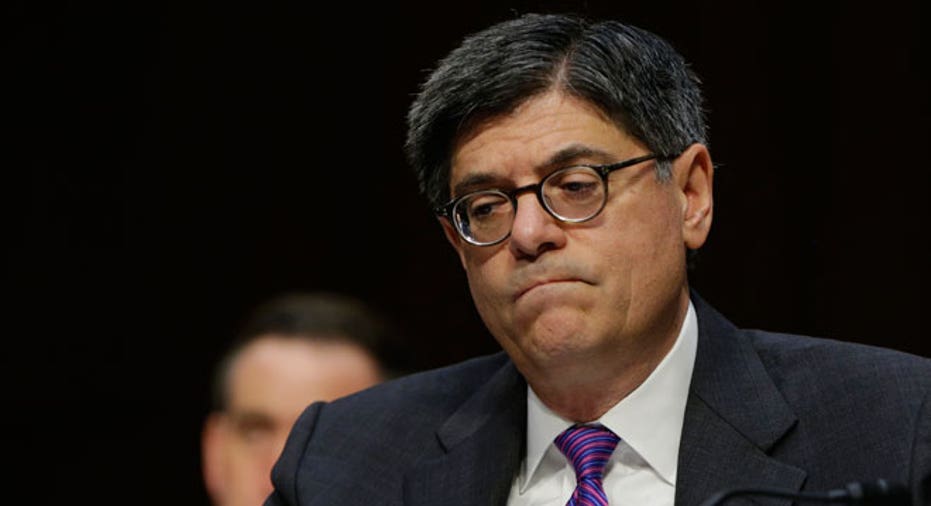Lew: It was Never a Policy Not to Pay Our Bills

With just a week before the estimated debt-ceiling deadline, Treasury Secretary Jack Lew warned Congress Thursday that not raising the country’s borrowing limit would put the economic recovery in danger. He also said he would be unable to guarantee payments to any group or bondholders without a higher debt limit.
Lew urged Congress not to repeat the 2011 debt limit impasse that sent Wall Street plunging, and said the administration “did not rule out doing something shorter” to make sure the $16.7 trillion debt limit is raised.
In his prepared remarks, Lew called the debt debate a “manufactured political crisis” that is starting to hurt the economy “at a time when the U.S. economy and the American people have painstakingly fought back from the worst recession since the Great Depression.”
Lew argued against the idea of prioritizing the country’s payments—specifically making interest payments on debt first--saying it wouldn’t solve the bigger problem and that the country “should not be put in a position of making such perilous choices.” If the country were to breach the debt limit, interest on those payment would likely increase, he said, because investors would leave Treasury securities and new investors would insist higher rates.
Lew detailed government payments that could go unpaid if Treasury’s borrowing limit isn’t increased, but he did not include debt obligation on the list.
“Between October 17 and November 1, we have large payments to Medicare providers, Social Security beneficiaries, and veterans, as well as salaries for active duty members of the military. A failure to raise the debt limit could put timely payment of all of these at risk.” On Oct. 23, Uncle Sam faces a $12 billion tab for Social Security benefits, and a $2 billion Medicare provider bill five days later.
On Oct. 30, a $6 billion interest on public debt payment comes due, and as the debt ceiling debate drags on, the cost of insurance on U.S. government debt is rising.
Wall Street has been on the fence with its reaction to the impasse, but experts say they are starting to show more angst as the deadline nears with the Volatility Index jumping 13% to as high as 18.93 earlier in the week. Money-market funds, which invest in invests in short-term debt securities, could experience the most instability if the debate drags on.
“Because people are hedging the risk of a possible delayed payment it could put money markets in a state of turmoil,” says Charlie Smith, chief investment officer at Fort Pitt Capital Group, a Pittsburgh-based wealth management firm. “If you leverage 20,30, 50 to one in an investment portfolio and you might not get paid on one of your trades and you get a margin call—well, you have a problem.”
In an Oct. 1 letter, Lew told Congress that he estimated that the government would run out of money on Oct. 17. “We estimate that, at that point, Treasury would have only approximately $30 billion to meet our country’s commitments.” That amount falls short of the country’s net expenditures which can hit $60 billion some days.



















